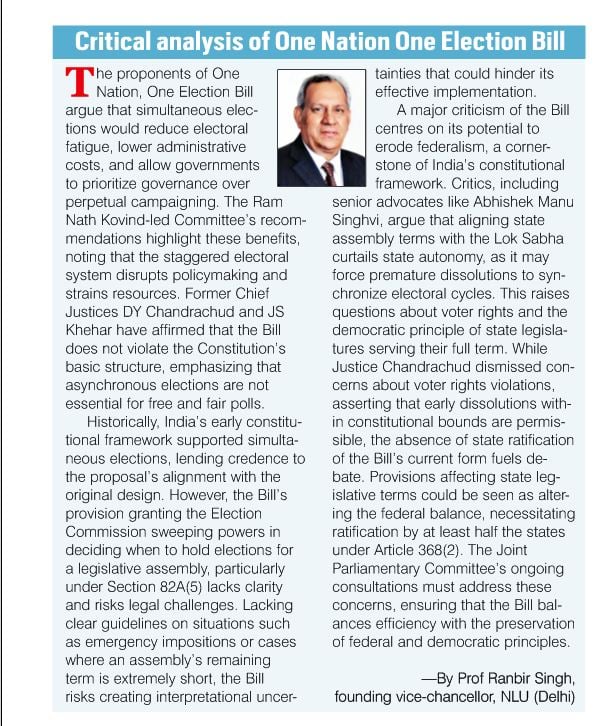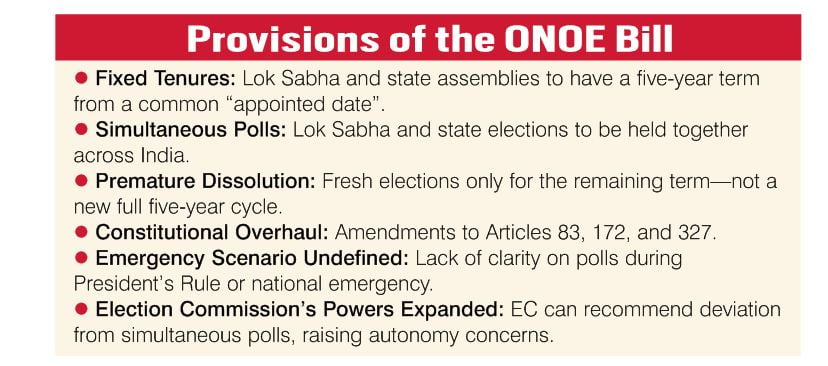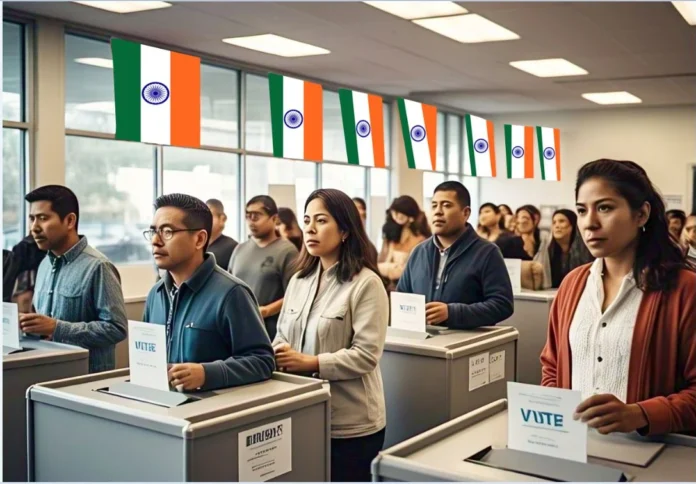By Sanjay Raman Sinha
The Modi government’s pet project One Nation One Election (ONOE) is being deliberated before the Joint Parliamentary Committee (JPC). Recently former chief justices DY Chandrachud and JS Khehar gave their inputs before the JPC. Though they were broadly in favour of the proposed Bill, they had their objections and concerns which they placed before the Committee.
The former chief justices raised concerns about state autonomy, federal structure, and possibility of centralization of power. There are also fears that it may eliminate regional parties and undermine regional issues. The extensive powers proposed for the Election Commission was flagged as worrisome. The concerned paragraph says: “If the Election Commission is of the opinion that the elections to any Legislative Assembly cannot be conducted along with the general election to the House of the People, it may make a recommendation to the President.” This provision has raised an alert.

However, speaking to India Legal, TS Krishnamurthy, former chief election commissioner, disagreed: “It is absolutely necessary that the Election Commission has the power to decide the timing of the election. Even as of now, the Constitution permits the Election Commission to decide the election dates, except where the limits specified in the Constitution. The change or the provision proposed seems to be in line with the existing provisions of the Constitution and the Representation of People’s Act. There is no need to apprehend that the Election Commission has extraordinary power in this regard.” But with the Chief Election Commissioner’s appointment effectively under the reins of the ruling party, the fears are not unfounded.
Two grey areas which demand attention is the scenario of emergency and short remaining term of an assembly in event of election. Will the early dissolution entail a constitutional breach; and will a state returning from emergency demand a whole nationwide polls of all states?
While the purpose of holding simultaneous elections is to reduce the number of frequent elections, one of the recommendations seems to be exactly the opposite.

The high-power Committee’s recommendation to dissolve the House and hold elections after a no-confidence motion could lead to more frequent elections, contradicting the purpose of simultaneous elections to reduce election frequency. This could result in elections being held for short remaining tenures. However, one Committee member’s proposal finds endorsement by Krishnamurthy: “The suggestion is to make it mandatory for the person bringing a no-confidence motion to propose a leader to be elected by the House if the motion succeeds. This leader would then complete the remaining tenure, reducing the need for frequent elections. By doing so, the purpose of simultaneous elections to minimize frequent elections would be achieved.” He also contends that the argument that ONOE will work against federal spirit is not convincing because the voters have in the past voted differently for the state and the centre.
The Bill aims to hold simultaneous elections for the Lok Sabha and state legislatures, reducing financial and administrative costs. It proposes a single window election system, streamlining governance and enhancing electoral process efficiency.
While administrative efficiency in holding elections and reduced cost is being mooted as positive aspects of the ONOE plan, a massive investment in new electronic voting machines (EVMs), around Rs 10,000 crore every 15 years is the financial downside.
The ONOE Bill has been passed in the Lok Sabha with 269 votes in favour and 198 against it. The Bill was introduced by Law Minister Arjun Ram Meghwal and referred to a JPC for comprehensive discussion. While the proposed Bill is seen as a challenge to the federal character of the Nation, political instability has the potential to upset the ONOE applecart.


